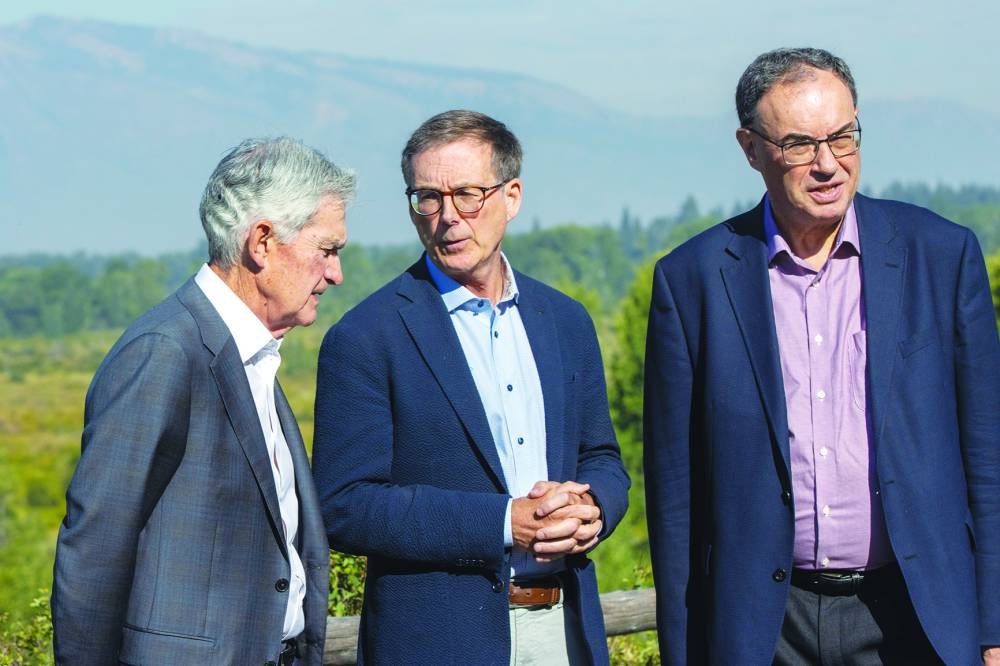Officials from three of the world’s major central banks signalled they are firmly on course to lower — or continue lowering — interest rates in the coming months, marking the beginning of the end for an era of high borrowing costs as the global economy slips out of the grip of post-Covid inflation.
“The time has come for policy to adjust,” Fed Chair Jerome Powell told an annual gathering of global policymakers and economists in Jackson Hole, Wyoming, all but committing the US central bank to lowering rates when officials meet in September.
Getting the Fed’s start date fixed, and having many of the world’s big central banks paddling in the same direction, removes some anxieties for investors.
Still, tremendous uncertainty and risks remain. Neither Powell nor his counterparts offered much guidance on how quickly they intend to proceed in lowering rates over the next several months. Meanwhile, against that uncertainty, emerging weakness in labour markets and overall growth are replacing inflation as the chief threat for policymakers.
In addition to Powell, several members of the European Central Bank (ECB)’s Governing Council were also present for the wonky talk and breathtaking scenery in Grand Teton National Park. Finland’s Olli Rehn, Latvia’s Martins Kazaks, Croatia’s Boris Vujcic and Portugal’s Mario Centeno all indicated they would support another reduction in interest rates next month – after a landmark cut in June.
Rehn described the disinflation process in the euro area as “on track,” while warning that “the growth outlook in Europe, especially manufacturing, is rather subdued.” He added, that “this enforces the case for a rate cut in September.”
Centeno called a decision to ease again in less than three weeks “easy,” given the data on inflation and growth.
Euro-area policymakers also now appear more concerned about growth, which has stumbled after a strong first half of the year.
They’re also signalling worry over a softening of labour markets and less about inflation, even though the ECB’s mandate doesn’t include employment.
Among the ECB officials, some consensus appeared to emerge around two more cuts this year, including a September move, as long as inflation remains in line with the bank’s projections, which see it coming down to the 2% target in the second half of 2025.
Bank of England Governor Andrew Bailey was also due to address the Jackson Hole gathering on Friday. In prepared remarks released ahead of his speech, he signalled an openness to further rate cuts when he said the risks of persistent inflation appeared to be waning.

From left: Jerome Powell, chairman of the US Federal Reserve, Tiff Macklem, governor of the Bank of Canada, and Andrew Bailey, governor of the Bank of England during the Kansas City Federal Reserve’s Jackson Hole Economic Policy Symposium, on Friday, August 23. Officials from three of the world’s major central banks signalled they are firmly on course to lower — or continue lowering —
interest rates in the coming months.
